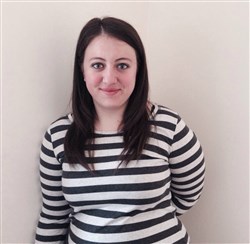What were the main reasons that encouraged you to choose Sweden and Stockholm University?
For my department, there were not many alternatives for Erasmus—only Sweden and Denmark, and I chose Sweden, but I don’t know exactly why. I talked with some people who had gone there before, and maybe I was influenced by what they told me.
How was life in Stockholm in terms of cultural and social activities?
Stockholm is quite a calm city, actually, and everybody goes their own way. There are a lot of museums, and they are really interesting ones. I suppose that since winter is so long and the daytime is so short then, they found the solution was opening a lot of museums. The most interesting museum for me was the one about Absolut Vodka.
I can say that the school really took care of us. There was an ESN team, and also the Social Union Team of the school itself.
What is the average cost of living in Stockholm for a student?
Living there is expensive. The grant covered only the cost of accommodation. Beyond that, I spent 500-600 euros per month, even though I rarely ate out and usually prepared meals for myself in the dormitory. The price of a meal outside started from around 80 crowns, corresponding to 30 TL.
Was it easy to find accommodations? Does the school offer dormitory rooms to exchange students?
There is a general dormitory system in Stockholm. All of the dormitories are located in one part of the city, and all of the students from the various universities are allowed to stay there. They also prioritize Erasmus students, so it was easy for me to find a place. And in fact, I stayed in a dorm very close to the campus and paid 2,000 euros for a term (five months).
How were the courses, projects and exams at Stockholm University compared to those at Bilkent?
The Swedish education system is very different. They divide a semester into two periods, and the maximum number of courses a student can take is three per period. The first period starts in January and finishes in March; the second period starts in March and ends in June.
The assignments were harder, but students usually have two weeks for one assignment. The exams were long and hard; they lasted for five hours and were divided into three parts. The labs are different, too.
What is the language of instruction? Is it easy to find courses in English?
In Sweden, undergraduate studies last for three years and graduate studies last for two years, so it’s like a package program for Swedish students. All of the undergraduate courses were in Swedish; only the graduate courses were in English. So I had to take graduate courses, and they weren’t easy! Surprisingly, though, the graduate courses were equivalent to undergraduate courses at Bilkent.
Does the school offer a language course for international students to teach them the local language?
There are Swedish courses for international students. I took one each period, and I was able to transfer the credits to Bilkent. And the course was really effective. By the end of the June, I was able to go to a supermarket, shop and talk to the cashiers without using any English.
What was the most memorable thing about your Erasmus experience?
The tour they did on our first day in Stockholm was probably the most memorable thing for me. I didn’t know much about Stockholm before that. They took us to important places and told us about them. Everything was covered in snow. I don’t remember much of the information, but Stockholm was truly enchanting.
What was the biggest challenge you had to deal with during your Erasmus exchange?
Cleaning the dorm room was our responsibility. Although I stayed in a dormitory, cooking and cleaning was a challenge for me, because in Bilkent’s dormitories there are staff who clean the rooms, kitchens and bathrooms. In Sweden, there wasn’t any staff. We had to do everything. Also, the dorm room included a bathroom and restroom, so even those were our responsibility. Furthermore, there weren’t any sheets or pillows provided. I thought the dormitory would be like the ones at Bilkent, but obviously it wasn’t. On the first day, I went to IKEA in order to buy those kinds of things. Hence, getting used to these challenges was difficult. Plus, I couldn’t order from outside much because there wasn’t anything like Yemek Sepeti. We rarely ate meals from outside.
What special tips can you give for prospective Erasmus students?
• Think about what might be needed in the country you are going to.
• Get advice from people who have been there.
• Look at the school’s web pages.
• Cook for yourself in order to save money.
• Make friends with a lot of people from different countries.
• Study while travelling, because both can be done at the same time.
What did you gain from your Erasmus experience?
I learned how to live without relying on anyone else. Even though
I didn’t know the language there, I learned how to stand on my own two feet. In Ankara, I also stayed in a dormitory, but I knew the language,
I knew the culture, and, most importantly, if I had any problems, my parents would come immediately. In Sweden, I didn’t have those advantages. I had to deal with everything on my own. That was Erasmus’s biggest contribution to me.
Interviewers: Eda Ertan (MAN/III), Cansu Ateş (MAN/III), Halenur Öztekin (MAN/III)

